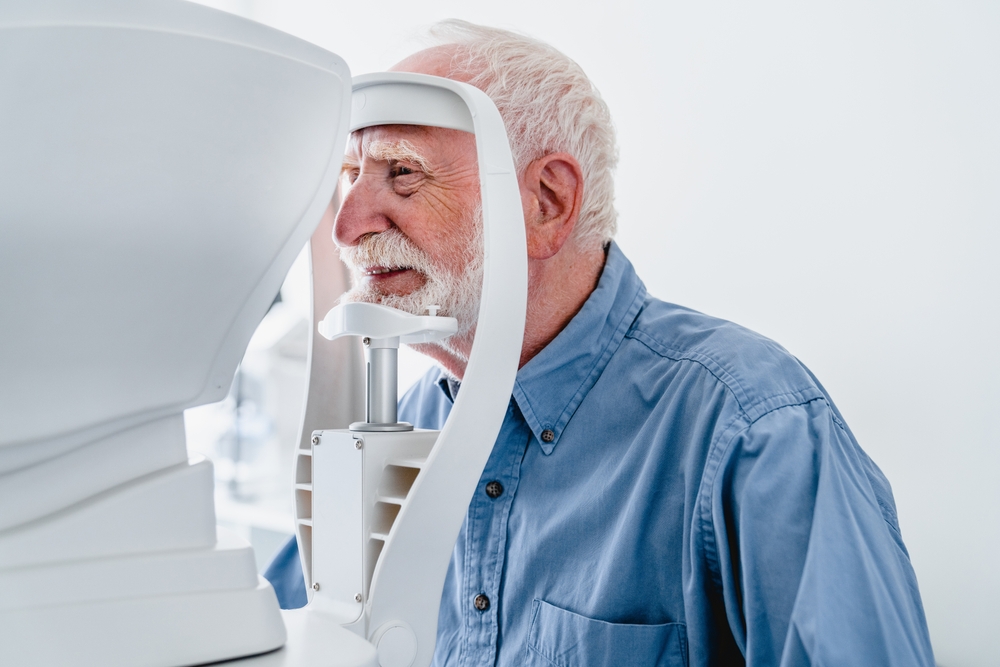
Cataracts are a common eye condition that affects millions of people worldwide. As we age, the natural lens of the eye can become cloudy, leading to blurred or distorted vision. This clouding of the lens is known as a cataract, and it can significantly impact your quality of life if left untreated.
How Cataracts Develop
Cataracts typically develop gradually over time as the lens of the eye becomes more rigid and opaque. This process is a natural part of the aging process, and it can be influenced by a variety of factors, including:
• Age: The primary risk factor for cataracts is advancing age. The likelihood of developing cataracts increases significantly after the age of 60.
• Exposure to ultraviolet (UV) light: Prolonged exposure to UV light from the sun can contribute to the development of cataracts.
• Certain medical conditions: Conditions like diabetes, hypertension, and prolonged use of corticosteroid medications can increase the risk of cataract formation.
• Injury or trauma to the eye: Damage to the lens of the eye, either from an accident or a previous eye surgery, can lead to the formation of cataracts.
Common Symptoms of Cataracts
As cataracts progress, they can cause a range of symptoms that can significantly impact your daily life. Some of the most common symptoms include:
· Blurred or cloudy vision
· Sensitivity to glare and light
· Difficulty seeing at night or in low-light conditions
· Frequent changes in eyeglass or contact lens prescriptions
· Double vision or multiple images in one eye
· Faded or yellowed colors
If you experience any of these symptoms, it's important to schedule an appointment with your eye doctor for a comprehensive evaluation.
Non-Surgical Treatment Options for Cataracts
While cataract surgery is often the most effective treatment, there are several non-surgical options that can help manage the symptoms of cataracts and potentially slow their progression. These include:
• Improved Lighting: Enhancing the lighting in your environment, such as using brighter lamps or increasing the brightness of your computer screen, can help compensate for the reduced visual acuity caused by cataracts.
• Anti-Glare Sunglasses: Wearing high-quality, anti-glare sunglasses can help reduce the impact of glare and light sensitivity, making it easier to perform daily tasks.
• Prescription Eyeglasses or Contact Lenses: Your eye care professional may recommend updated prescriptions for eyeglasses or contact lenses to help improve your vision and compensate for the effects of cataracts.
• Magnifying Devices: Using magnifying devices, such as handheld or stand-mounted magnifiers, can enhance your ability to read and perform detailed tasks.
• Dietary Changes: Some research suggests that a diet rich in antioxidants, such as vitamins C and E, may help slow the progression of cataracts. Consult with your eye care professional or a registered dietitian for personalized dietary recommendations.
While these non-surgical options can provide temporary relief and help manage the symptoms of cataracts, they do not address the underlying cause of the condition. In many cases, cataract surgery may be the most effective long-term solution.
When is Cataract Surgery Recommended?
Cataract surgery is typically recommended when the cataract has progressed to the point where it significantly interferes with your daily activities and quality of life. Your doctor will consider several factors when determining the appropriate time for surgery. If the cataract has advanced to the point where it is severely impairing your vision and making it difficult to perform everyday tasks, such as driving or reading, surgery may be recommended.
Additionally, if the cataract is impacting your ability to engage in activities you enjoy or causing significant difficulties in your daily life, your doctor may recommend cataract surgery.
The Benefits of Cataract Surgery
Cataract surgery is a highly effective treatment that can provide a range of benefits, including:
• Improved Vision: Removing the clouded lens and replacing it with a clear artificial lens can dramatically improve your visual acuity, allowing you to see more clearly and with greater contrast.
• Enhanced Quality of Life: By restoring your vision, cataract surgery can significantly enhance your ability to perform daily activities, such as driving, reading, and engaging in hobbies, ultimately improving your overall quality of life.
• Reduced Dependency on Corrective Lenses: In many cases, cataract surgery can reduce or eliminate the need for prescription eyeglasses or contact lenses, providing greater convenience and freedom in your daily life.
• Reduced Risk of Falls and Accidents: Improved vision can help reduce the risk of falls and accidents, particularly for older adults who may be more susceptible to these types of incidents.
• Potential Improvement in Other Eye Conditions: In some cases, cataract surgery may also help address or improve the management of other eye conditions, such as glaucoma or macular degeneration.
Is Cataract Surgery Right for You?
While cataract surgery is often the most effective long-term solution, it's important to understand that it may not be the only option for managing this condition. By exploring the various non-surgical treatment options and working closely with your eye care professional, you can develop a personalized plan that addresses your specific needs and goals.
At McCabe Vision Center, we are dedicated to providing personalized, comprehensive care for patients with cataracts. If you're experiencing vision changes or have concerns about cataracts, schedule a consultation to discuss your treatment options and determine the best course of action for your individual needs. Visit our office in Murfreesboro, Tennessee, or call (615) 904-9024 to book an appointment today.




